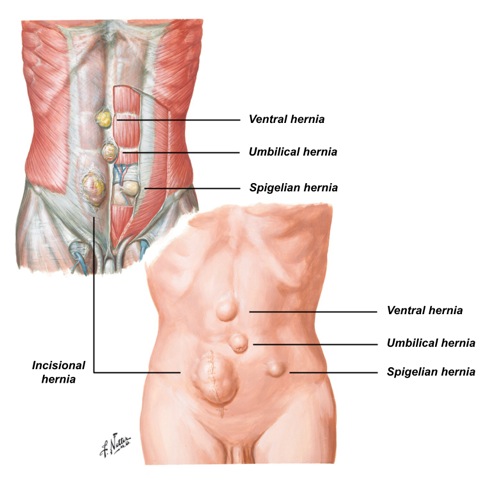Hernia treatment
An unavoidable condition: The risk of suffering an inguinal hernia in men is 27% and in women is about 3 %. Its treatment shouldn't be delayed and that's why Medical Port has teamed up with Dr. Miguel Pinto for a fast and effective Hernia treatment in Portugal
The Hernia repair (or Hernia surgery) shouldn't be delayed. With hernias there is potential for a bottleneck situation, in which the intestine is caught and undergoes a quick gangrene. This is a serious complication that requires urgent surgery and poses a serious health risk.
Medical Port offers the opportunity to have Hernia surgery in Portugal and has a dedicated staff to enhance the surgical hernia practice alongside Dr. Miguel Pinto. Dr. Pinto is a physician with nearly 40 years of experience and is recognized internationally as an expert in hernia treatment, having performed hernia surgeries in various parts of the globe including The United States, Europe and Africa.
If you would like to learn more information about Hernia Surgery in Portugal, contact us through email, by calling +351 220 973 751, by filling out our form, or using our free call service to your right.

EDUCATION
A Medicine degree by the University of Havana in 1974 and specialization in General Surgery in 1980 by Enrique Cabrera University Hospital and Ministerio de Salud Publica of Cuba. Equivalence of the degree in Medicine by Complutense University of Madrid and Coimbra University in 1994.
RECOGNIZED MEDICAL ASSOCIATION
- Member of Portuguese Medical College. Member of Portuguese College of Surgery
- Member of the staff of British Hospital of Lisbon from more than twenty two years
- Member of the European Hernia Society
- Member of the Americas Hernia Society AHS
- President of International Meeting of Hernia Surgery at Fernando Fonseca Hospital in Lisbon
PROFESSIONAL ACCOMPLISHMENT
- Author of surgery books and published articles in medical journals
- Surgery Fellowship at Baptist Hospital and Gilbert Institute of Hernia in Miami, Florida
- Board Chairman of Congress of the European Hernia Society Sevilla Spain
- President of International Meeting of Hernia Surgery at Fernando Fonseca Hospital in Lisbon
- Masterclasses for hernia repair
Hernia is a latin word meaning "rupture". It is a defect located on the abdominal wall, a hole that allows the passage of abnormal intestine or other abdominal viscera. Whenever this rupture occurs, surgical hernia repair is needed.
Yes. For example, the risk of suffering an inguinal hernia in men is 27% and in women is about 3 %.
The most frequent hernias, about 73 %, are located in the inguinal region (the groin area). Following are those that are located in umbilical region (navel area) and third are the incisional that appear at the level of the scar of an abdominal surgery. There are, however, hernias that occur in other locations.
Hernias can be a result of a congenital defect, of important metabolic tissue changes, of random combinations of these and/of inadequate healing of wounds from previous abdominal surgeries.
No, but we can reduce the probability of its occurrence by avoiding habits that weaken the tissues such as smoking, having a poor nutrition, diets that reduce the weight at an exaggerated speed etc.
Yes, in some cases and sometimes in the early stages.
Although the gene responsible for causing hernias has not been detected, the statistics show a familial tendency which suggests the existence of a genetic defect.
With hernias there is potential for a bottleneck situation, in which the intestine is caught and undergoes a quick gangrene. This is a serious complication that requires urgent surgery and poses a serious health risk.
In adult hernias, the placement of surgical hernia patches is recommended. Though in umbilical hernias with less than two centimeters in diameter and in hernias of sportsmen (entities with specific peculiarities), it is impossible to ignore this option. Attaching a surgical hernia patch on a child's hernia is not recommended because the membrane wall structure where they are attached is fixed and childrens' membranes are still growing.
No. Surgical hernia patches are in their vast majority composed of polypropylene, a synthetic product perfectly tolerated by the human body. However, there are extremely rare cases of rejection.
Not at all. The physical effort alone is not capable of producing a bulge. In order for a hernia to occur, the patient must posses a congenital defect and/or tissues that lack a good biological quality.
In up to 10% of cases a hernia will reappear. However, the use of surgical hernia patches and having the surgery performed by a specialized hernia surgeon reduces the risk to about 2 %.
Yes. There is a chance of having a hernia with no, or minimal, symptoms and even within such cases there is the potential to be subjected to the complications mentioned above.
Yes. With the exception of very specific cases hernias can all be operated via laparoscopy, but this approach requires a general anesthesia.
INGUINAL HERNIA
Groin, but can grow and fill the scrotum.
FEMORAL HERNIA
Immediately below the groin, at the root of the thigh.
Omphalocele
Located in the navel.
Epigastric hernia
In the middle line of the abdomen between the navel and chest.
INCISIONAL HERNIA
Occurs in the place of the scar of a previous abdominal surgery.
Recurrent HERNIA
Any of the earlier varieties manifested again after having been operated

